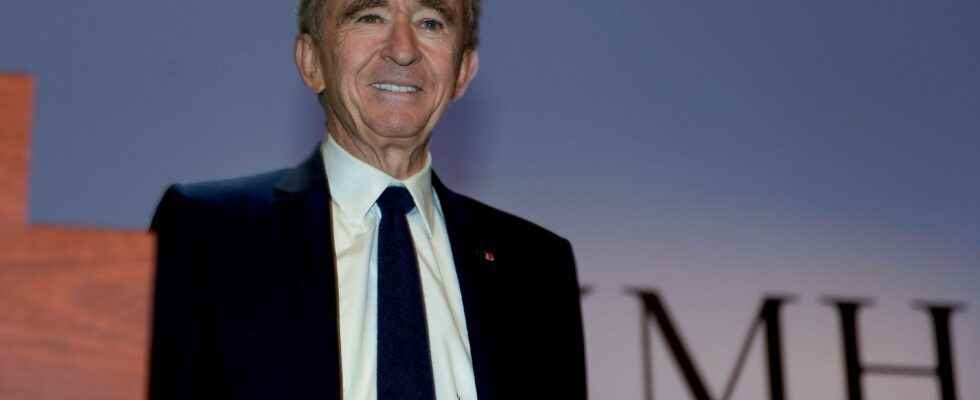The thought of a certain French radical left is reminiscent of those little labyrinth games that were given to children in the past to occupy them. The principle is that a ball must, by navigating intelligently in this little maze, arrive as quickly as possible to lodge in the central cavity, the end of its course. This labyrinth represents the world, its complexities, its surprises. The cavity is wisdom, or the ultima ratio. The ball is us, our thoughts, our moods, our mistakes too. With this radical left, however complex the situation, however difficult the problem, however convoluted the maze that the world gives us to navigate, we can be sure that the notch where the roller ball of their neurons very quickly comes to be stuck has always the same name: Bernard Arnault.
It even became almost comical. Jets that pollute? Bernard Arnault. The purchasing power ? Bernard Arnault. The dividends ? Bernard Arnault. Business taxation? Bernard Arnault. And now the problem of pensions? Bernard Arnault. This man is no longer a person, he is a concept. The notion of “Bernard Arnault” covers in the minds of the radical left everything that has, directly or indirectly, a relationship to money. It is true that being the richest man in the world confers a certain expertise in the matter. It is one thing to be a knower, another to be a totem. There is therefore no doubt that he has an opinion on the question of pensions informed by the presence of his group in most countries of the developed world.
But we must not think of soliciting his view on the question. Any speech on the subject would be immediately confronted not with the possible truth that it contains (even with biases), but with the totem that would emit it. A totem does not speak. It’s a voodoo tool. He’s here to scare the good people. This is where we are in France.
Pythia or icons
What is striking is that there are countries which invert this totem. Thus, in the United States, the billionaire is not a foil concept, but a kind of shaman. Elon Musk, Warren Buffett, Bill Gates, Jeff Bezos utter from the top of the mountain of dollars where they sit as definitive oracles. They are consulted as formerly the village Druid or the Delphic Pythia. With the money came to them a social and political authority which they make extensive use of. Why ? Because the American citizen thinks that, to become a billionaire, you have to understand things that not everyone understands. You have to have unraveled mysteries. Glimpsed the future. Guessed the secrets of the future. They will not be asked about pension reform or corporate taxation, but about the future of man. So they launch into endless tirades from which emerges a portrait of humanity situated somewhere between Orwell, Philip K. Dick and the Gospels. Those who listen to them or read them do not want to hear them talk so much about money (despite their expertise, there too), as about the mysteries of history as it is being woven before our eyes.
In other regions, billionaires meet different fates. The Chinese regime checks them. South Americans make them presidents. In Russia, they fall out of the window. The most interesting situation remains the African continent. Strangely, the degree of corruption of a certain ruling class makes the billionaire who has succeeded in business seem like a hope. Of course, not all of them are free from serious suspicion. But it is they who, in the eyes of African youth, carry the future of the continent. I am not saying: from such and such a country.
The twenty or so African billionaires are, in fact, pan-African. What they succeed in Africa is sometimes crony capitalism, but can also appear as exemplary. Nigerian Tony Elumelu’s Foundation has raised $100 million to incubate 10,000 young entrepreneurs who respond to the philosophy of “Africapitalism”, which considers that it is up to companies and not to States to ensure the prosperity of Africa. Where we turn our billionaires into sad symbols, others, less spoiled, try to turn them into icons, dragging entire peoples in their wake. The world is, decidedly, a strange labyrinth.
